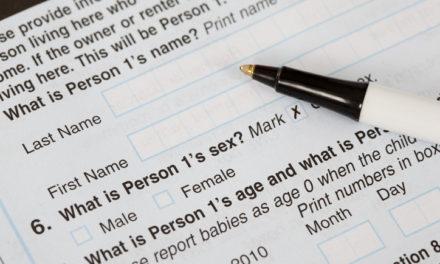
Despite personally occupying an LGBTQ identity, my attention to LGBTQ rights is sometimes less salient than other causes. This is, like so many things, a function of my privilege—my white skin and cisgender identity, and the fact that I have had the means to live and work in progressive areas, among supportive communities, where I see myself represented and my identities valued. While the right to marry was something my community gained during my lifetime, it almost feels as though it’s always been there for someone like me, who was newly entering adulthood during the key legislative battles and only later arrived at a stage of life where I contemplated settling down with someone of the same sex; I never had to seriously consider, as an adult, what my life would look like without this right. While I am well aware that things were not always this easy for my community (and for many, they remain very difficult today), it’s not every day that I am confronted with that reality.
While I am well aware that things were not always this easy for my community (and for many, they remain very difficult today), it’s not every day that I am confronted with that reality. Share on XWhen a friend sent me a humorous summary of the first episode of HBO’s “Gentleman Jack,” a period drama based on the real-life diaries of Anne Lister, a powerful woman who lived discreetly as a lesbian in Halifax in the early 19th century, I wasn’t sure how interesting I would find it. Yet, my friend’s enthusiasm piqued my curiosity, so I started the first episode, and had finished the first season in under a week.
Gentleman Jack offers a refreshing, sharp wit, which draws the viewer in and doesn’t let go. Anne, who usually dresses in men’s clothing and has (atypically for the time) inherited her family’s estate, deftly navigates the simultaneous challenges of wooing her love interests, collecting rent from her tenant farmers, and digging a coal mine on her property to spite her rivals. Unexpectedly borrowing an element common to modern-day comedies, Anne occasionally breaks the scene to turn and directly address the camera, when we least expect it—vocalizing her inner thoughts and machinations, which never cease. The result is hilariously funny, leaving viewers to feel like co-conspirators, all the more invested in her sometimes-questionable schemes. We gleefully watch as she talks circles round the bewildered men in the show, who are not depicted as foolish so much as realistically unprepared to reckon with the likes of Anne, a woman of unusual status and demeanor for this time period.
Anne is complex, and even as we cheer for our masculine heroine, she is not blameless. She enjoys, and occasionally exploits the status she was born into and its privileges. While she bemoans the threat of being legally barred from voting, it is more a complaint about her lack of personal access to this right, as an entitled member of the upper class, than it is a rallying cry for women; Anne in fact did not support voting rights for women as a general group, perhaps due to internalized misogyny that would logically have been commonplace at the time. While Anne does not always behave as “good person,” she is a tremendously compelling character nonetheless, eventually landing on the side we would hope (while continuing, always, to assert her dominance in her own way) around most of the concerns that arise in the plot of the show.
[Trigger Warning: The following paragraph contains description of violence against LGBTQ individuals.]
It is not only Anne who has a dark side—the tone of the show itself waltzes naturally from the lighthearted to the dark and serious. As characters regularly remind one another while gossiping about Ms. Lister, “two men were hanged” recently for engaging in homosexual acts. Watching from the safety of my modern-day home, I was reminded of a particularly disturbing scene from Hulu’s “The Handmaid’s Tale,” in which a gay woman is hung in front of her partner in a future dystopia that feels more real each day: a reminder of how tenuous hard-won rights, hardly assured in perpetuity, can be. (The scene upset me so much that I couldn’t bring myself to continue watching The Handmaid’s Tale, despite the rave reviews.) As Anne and her partner consider the reality of this potential consequence themselves, they each struggle in their own way with the tension between the undeniable connection they feel with one another, and real social penalties that threaten them.
As Anne begs her partner to move on to her family’s estate, exchange rings, and secretly take the sacrament together with her—as clandestine a manifestation of marriage as could realistically be fashioned at the time—I feel her hope, pain, and frustrations as familiar and acute. I want to reach through the screen to assure them both that, while their love may not have been sanctioned during their lifetimes, this was only a product of their time. I want to tell them that today, 200 years later, I live with my partner, who I can marry, and another gay couple. I want to tell them that June is LGBTQ Pride Month, and that my entire household attended a festival last weekend where we cheered in an audience of hundreds for women performing in drag, as men. I want to tell them that their story has become a legend in my community, that I thank them for living their truth, and for their reminders of the many things I have to be thankful for this Pride Month.
I want to reach through the screen to assure them both that, while their love may not have been sanctioned during their lifetimes, this was only a product of their time. Share on X

















